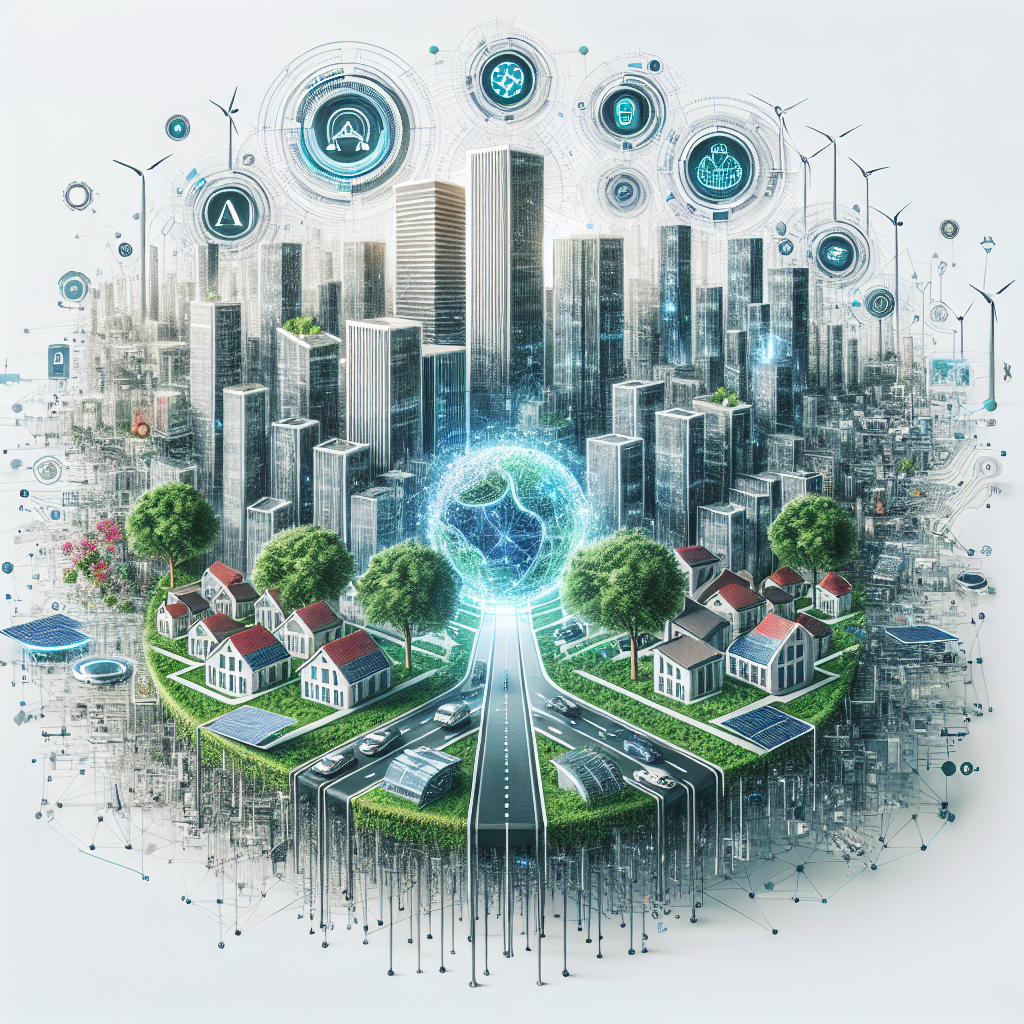In recent years, the concept of smart cities has gained momentum as urban areas around the world seek to leverage technology to improve sustainability, livability, and overall quality of life for their residents. One key driver of this movement is the use of artificial intelligence (AI) to power smart city initiatives. AI-powered smart cities have the potential to revolutionize the way cities are run, making them more efficient, sustainable, and responsive to the needs of their inhabitants.
AI technologies, such as machine learning, natural language processing, and computer vision, have the ability to process vast amounts of data in real-time, enabling cities to make more informed decisions and better allocate resources. By leveraging AI, cities can optimize transportation systems, improve energy efficiency, enhance public safety, and provide better services to residents.
One of the main goals of AI-powered smart cities is to enhance sustainability by reducing energy consumption, minimizing waste, and promoting environmentally-friendly practices. For example, AI can be used to optimize traffic flow, reducing congestion and emissions from vehicles. Smart sensors and IoT devices can monitor air quality and water usage, enabling cities to take proactive measures to reduce pollution and conserve resources.
AI can also play a key role in improving livability in cities by enhancing public services, infrastructure, and overall quality of life for residents. For example, AI-powered chatbots can provide real-time information and assistance to citizens, making it easier for them to access government services and information. Smart streetlights can adjust their brightness based on pedestrian traffic, improving safety and reducing energy consumption. AI-powered healthcare systems can analyze data to predict disease outbreaks and allocate resources more effectively.
Overall, AI-powered smart cities have the potential to transform urban areas into more sustainable, efficient, and livable environments. By harnessing the power of AI, cities can address key challenges such as traffic congestion, pollution, and resource scarcity, while also improving the quality of life for their residents.
FAQs:
Q: How does AI help in optimizing transportation systems in smart cities?
A: AI can analyze real-time traffic data to predict congestion patterns, optimize traffic signal timings, and suggest alternative routes to reduce travel times. This can help cities improve traffic flow, reduce emissions, and enhance overall transportation efficiency.
Q: What role does AI play in enhancing public safety in smart cities?
A: AI-powered surveillance systems can analyze video feeds to detect suspicious behavior, identify missing persons, and alert authorities to potential security threats. AI can also be used to predict crime hotspots and allocate resources more effectively to prevent criminal activity.
Q: How can AI improve energy efficiency in smart cities?
A: AI can analyze energy usage data from buildings, streetlights, and other infrastructure to identify opportunities for energy savings. Smart grids powered by AI can optimize energy distribution, reduce waste, and promote renewable energy sources, leading to a more sustainable and eco-friendly city.
Q: How can AI enhance public services in smart cities?
A: AI-powered chatbots and virtual assistants can provide real-time information and assistance to citizens, making it easier for them to access government services and resources. AI can also analyze data to predict service demand, improve response times, and enhance the overall efficiency of public services.
In conclusion, AI-powered smart cities have the potential to revolutionize urban living by enhancing sustainability, livability, and overall quality of life for residents. By harnessing the power of AI technologies, cities can optimize transportation systems, improve energy efficiency, enhance public safety, and provide better services to their citizens. As the world continues to urbanize at a rapid pace, AI-powered smart cities will play a crucial role in shaping the future of urban development and creating more sustainable, efficient, and livable cities for generations to come.

